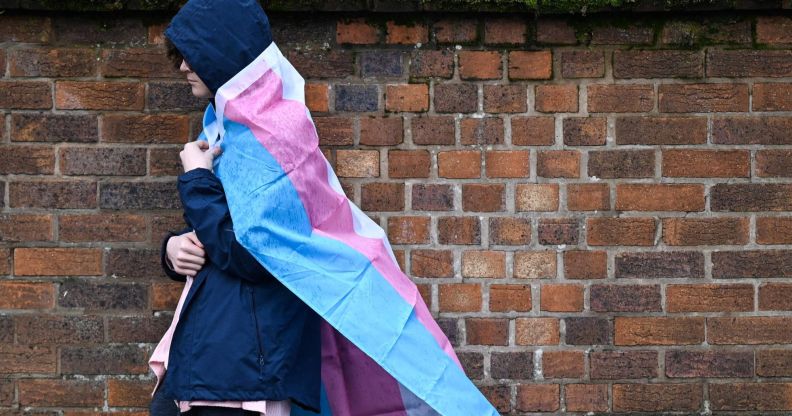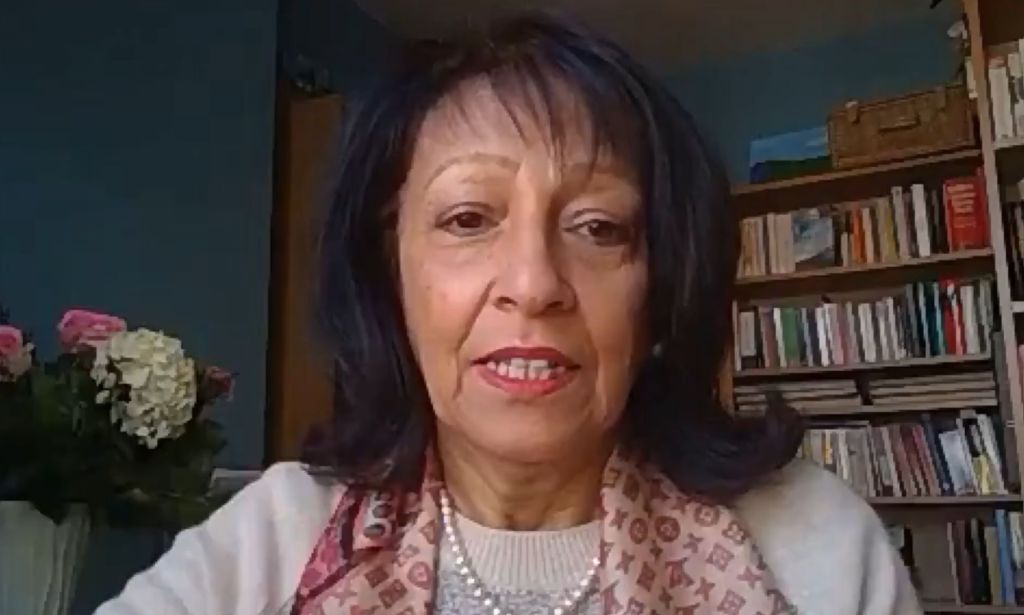EHRC insists it has ‘championed’ trans rights, despite claims it has done very little

Trans children are “too scared” to go to school over fears of bullying. (Getty)
The UK’s Equality and Human Rights Commission (EHRC) claims it has “championed the rights of trans people” over the last two years, despite some claiming it has done the opposite.
The EHRC made the claims in response to a letter written by LGBTQ+ activist Jayne Ozanne in April that criticised recommendations it made in changing the definition of sex to mean ‘biological sex’ in the Equality Act 2010.
In its response, posted by Ozanne on Tuesday (21 June), EHRC chief executive Marcial Boo wrote that the Commission remains “committed” to work with what he described as “all stakeholders, including those representing the LGBT community”.
“Disagreement in areas such as this is to be expected, but we still hope to work effectively together to protect and promote equality and human rights for everyone,” Boo continued.
Concerns were raised about the possibility of the Equality Act 2010 being modified to remove rights for trans people after controversial Commission chair Kishwer Falkner sent a letter to equalities minister Kemi Badenoch giving advice on a possible amendment to the law.
In the letter, Falkner said that changing the definition of sex to mean ‘biological sex’ would provide “greater legal clarity in some areas“. She also used examples including that the change would allow institutions to exclude trans men and women from sports and single-sex services such as hospital wards.
In the weeks following the letter’s publication, it was revealed by an independent UN expert that the EHRC had no clear definition for ‘biological sex’.
Despite this and several other instances in which the EHRC has been condemned for its approach to handling trans issues, Boo insisted that, over the last two years – in which Falkner had been made the EHRC chair – the Commission had made steps in supporting trans people.
“I would refer you to our work over the last two years to support trans people, including successfully undertaking legal action to support trans people who have been discriminated against,” he said.
“In addition, we have repeatedly championed the rights of trans people to the UK government’s Department of Health and Social Care, including raising concerns directly with ministers about unacceptably long waiting times for gender identity services.”
EHRC responds to criticism of its approach to trans policies
When asked to clarify the specific legal cases it was referring to, an EHRC spokesperson told PinkNews: “Some legal issues on which we advise, particularly relating to sex and gender can be very complex, and there are a range of views among experts, as in society.
“Our role is to make judgements on very difficult and contentious areas of the law after considering all advice.
“We operate an open-door policy and listen to and engage with people, both inside and outside our organisation, whose views reflect the whole spectrum of opinions,” the spokesperson continued.
“This helps support strong and impartial decision-making that is focused on evidence and the law.”

The EHRC reiterated the belief by the Commission that “clarifying the definition of sex” would not mean that trans people would be subjected to unlawful discrimination, claiming that the change would “not remove the characteristic of gender reassignment from the Equality Act”.
“It is our legal duty to uphold the equality and human rights of everyone in Britain, including trans people. This is core to everything we do.”
The Commission noted examples of cases in which it claimed to “guarantee the rights of trans people”, which included the recommendation to change the Equality Act’s definition of sex.
It also noted its work in reducing wider inequality, which it said included legal action to protect LGBTQ+ workers from discrimination.
Additionally, the EHRC cited its opposition to so-called conversion therapy, which it reiterated included transgender people – despite asking the UK government to delay legislation in 2022.
Its final example was a legal agreement signed by Jaguar Land Rover Ltd in 2021 which aimed to “improve its policies and practices in relation to equality and diversity”.
The signed legal policy made several recommendations to the car manufacturer, which included a pledge to update its transitioning at work guidance to ensure it reflects “best practice”.
EHRC should ‘work collaboratively’ with LGBTQ+ community to regain trust, activists say
Responding to the letter, Jayne Ozanne said: “I was intrigued by Mr Boo’s assertion that he is protecting the rights of trans people.
“The truth is that many view his current actions as tragically seeking to undermine their very existence, which unfortunately negates any small steps the EHRC may have made on their behalf over the last two years.
“He would do well to ensure he works collaboratively with them in advance of issuing any further future guidance.”
Since 2021, the Commission has been condemned by LGBTQ+ groups and activists after it expressed support for ‘gender-critical’ activist Maya Forstater during her legal case, in which the EHRC said that her beliefs were protected under the Equality Act.
Its descent into controversy has been met with waves of en-masse resignations by staff who have claimed it promotes an “anti-LGBTQ+” culture.
Some of the most significant examples of its arguably anti-LGBTQ+ positions include urging the Scottish government to delay a gender law reform that would have made it easier for trans people to change their legal documents, as well as scheduling private meetings with notoriously anti-trans groups LGB Alliance and Fair Play for Women.
Not only have the policy recommendations been heavily criticised by trans activists, but there are also reports of an internal investigation into accusations of bullying made against Falkner that has since been suspended.
The investigation was brought to light through leaks shared with Channel 4 News in May, which included claims that there is a “toxic culture” in the Commission, which has caused a high turnover of LGBTQ+ staff.
A set of internal complaints claim that there is a “lack of trust” within the organisation and that Falkner has made several anti-trans remarks, including calling a trans quiz contestant a “bloke in lipstick”, which the EHRC has denied.

